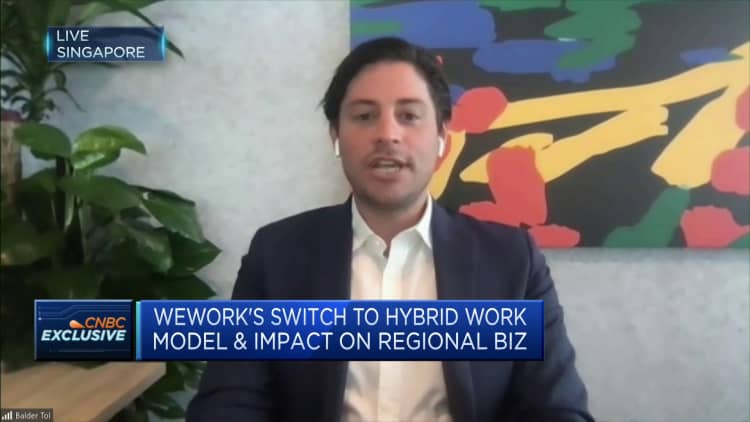Companies are slashing parental leave benefits as their ‘purse strings have tightened.’ Here’s how to prepare
After boosting paid parental leave during the pandemic, many companies are now cutting or reducing the popular employee benefit.
In 2022, organizations with paid maternity leave dropped to 35% from 53% in 2020, according to the Society for Human Resource Management’s employee benefits survey. And fewer than one-third, 27%, now provide paid paternity leave, down from 44% in 2020.
“A lot of these firms are now trying to get back to pre-pandemic norms,” said Michelle Long, a policy analyst at the nonprofit Kaiser Family Foundation.
More from Personal Finance:
Borrowers in these states may owe taxes on student loan forgiveness
Inflation fears spur shoppers to get an early jump on the year-end holidays
Citi expands program to boost homeownership in diverse communities
During the pandemic, many companies enhanced offerings beyond what is required by state law, but now “purse strings have tightened” as the economy has shifted, Long said.
Currently, there isn’t a federal paid leave program, and only 11 states plus the District of Columbia offer the benefit, typically funded by payroll taxes, according to data from the National Conference of State Legislatures.
This is a very, very expensive offering, particularly for small and medium-sized companies.
Johnny C. Taylor, Jr.
President and CEO of the Society for Human Resource Management
“This is a very, very expensive offering, particularly for small and medium-sized companies,” said Johnny Taylor, Jr., president and CEO of the Society for Human Resource Management, explaining that some firms may pay wages for the employee on leave and a replacement at the same time.
However, as the labor market softens, “the game is changing a little bit,” he said, and companies are cutting back on previously enhanced paid parental leave policies.
How to prepare if you lose paid parental leave
Whether you’re a current employee or weighing job offers, it’s important to know the details of your company’s parental leave policy if you’re planning to grow your family, Taylor said.
“Oftentimes, the temptation is to take a job with the highest salary without factoring in things like their paid leave offering,” he said. If you’re interviewing, ask for an overview of the company’s full benefits package, he suggested.
While using vacation time for parental leave is another option, he urged future parents to weigh the pros and cons before depleting paid days off for the year.
“Nurturing a new baby is not a vacation,” Taylor said. “If you spend all your vacation time doing that, you’re going to burn out.”

Future parents may also consider coordinating benefits or taking paid leave separately, suggested Nicole Sullivan, a certified financial planner and co-founder of Prism Planning Partners in Libertyville, Illinois.
“Fully understanding and coordinating all company benefits is another major help — things like flexible spending or dependent care accounts and medical benefits,” she said.
“Many companies have benefits open enrollment in November, so it’s a good time for parents and parents-to-be to review,” Sullivan added.
For all the latest Business News Click Here
For the latest news and updates, follow us on Google News.

